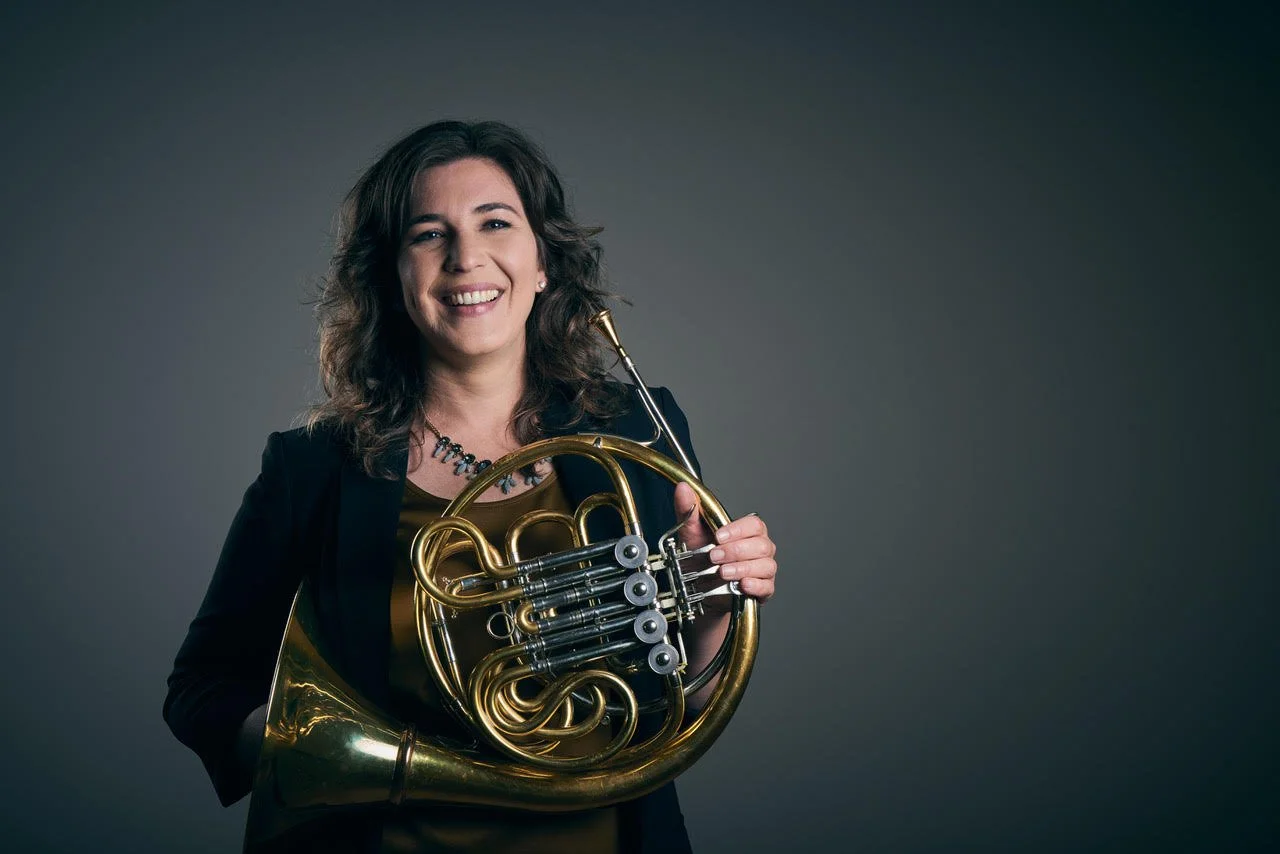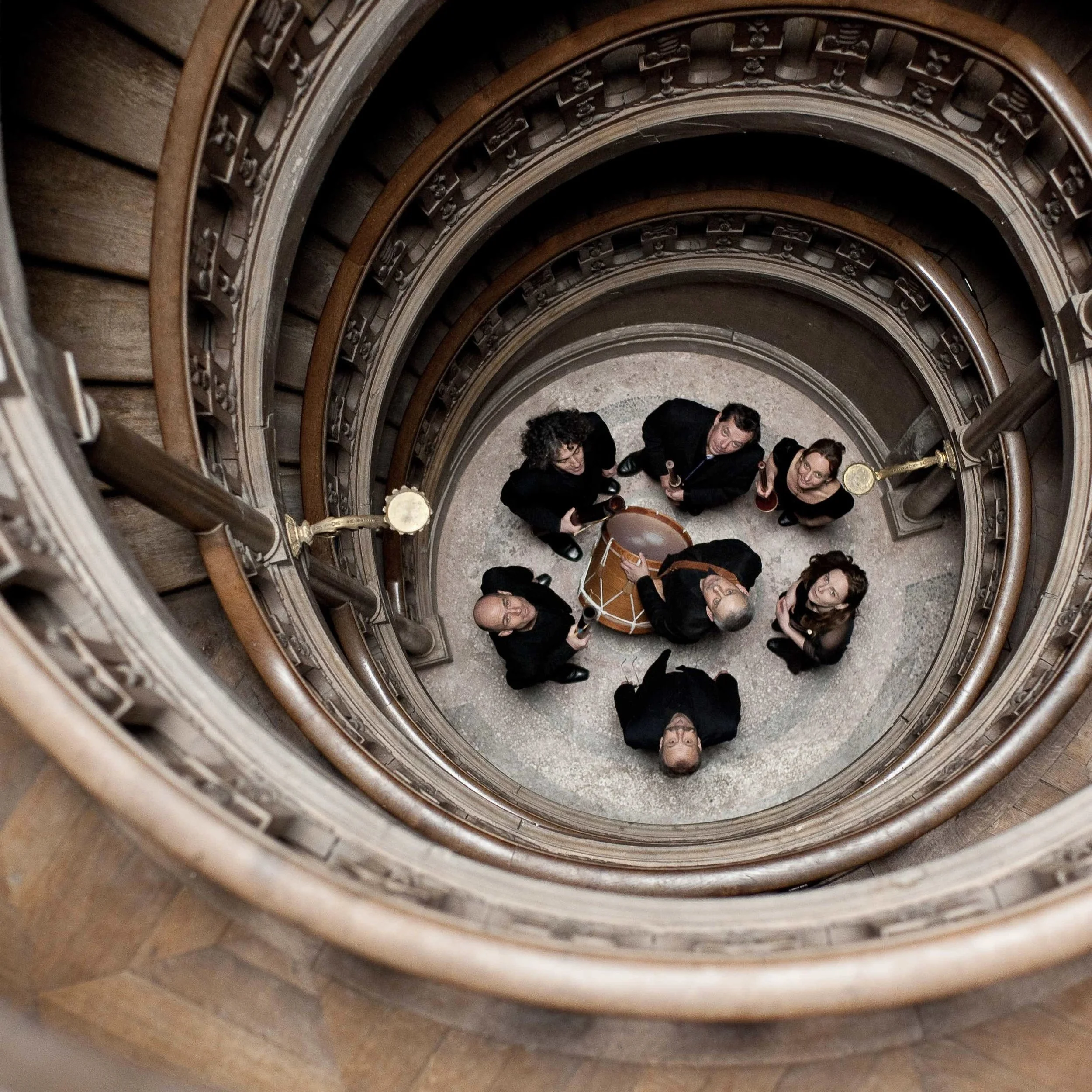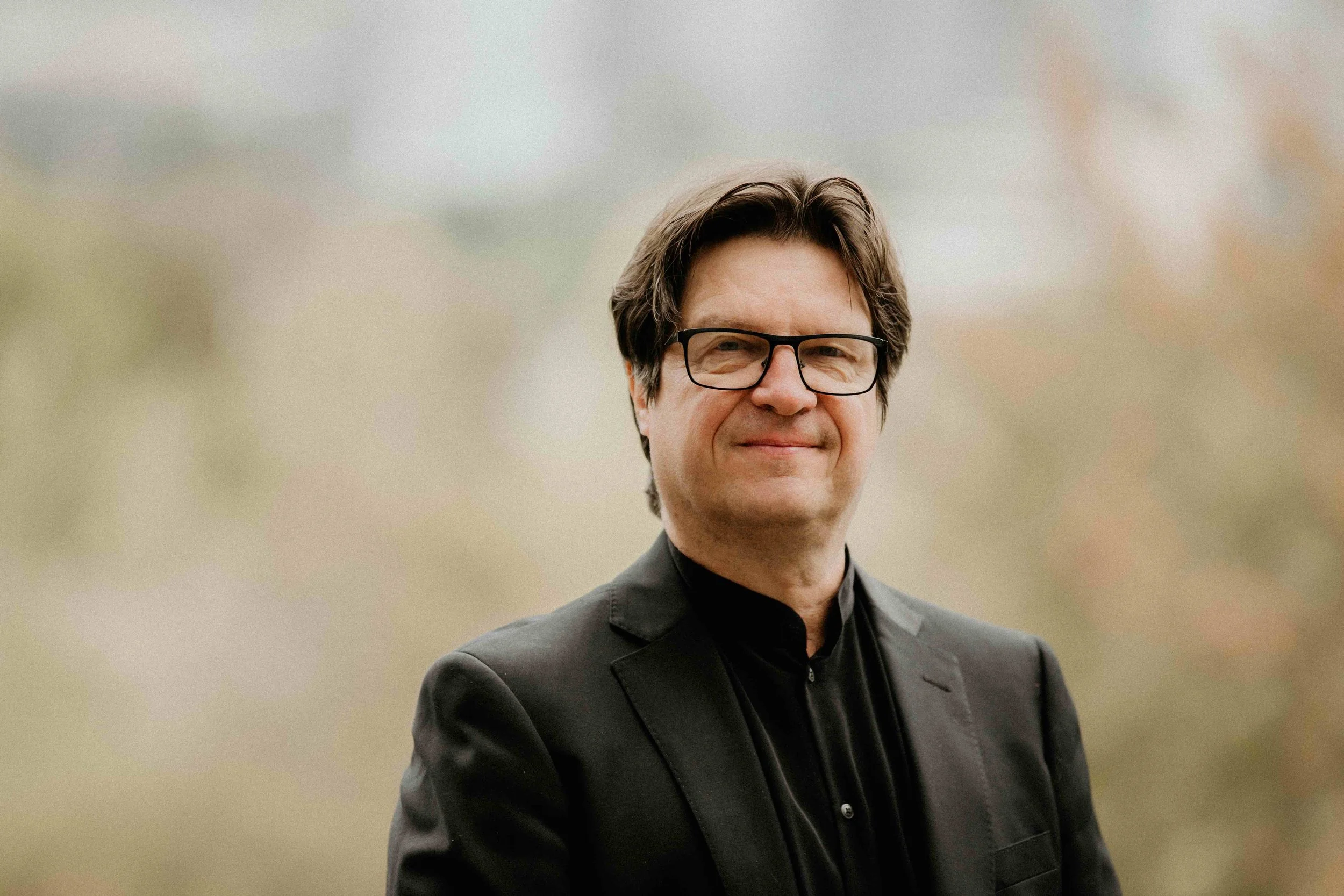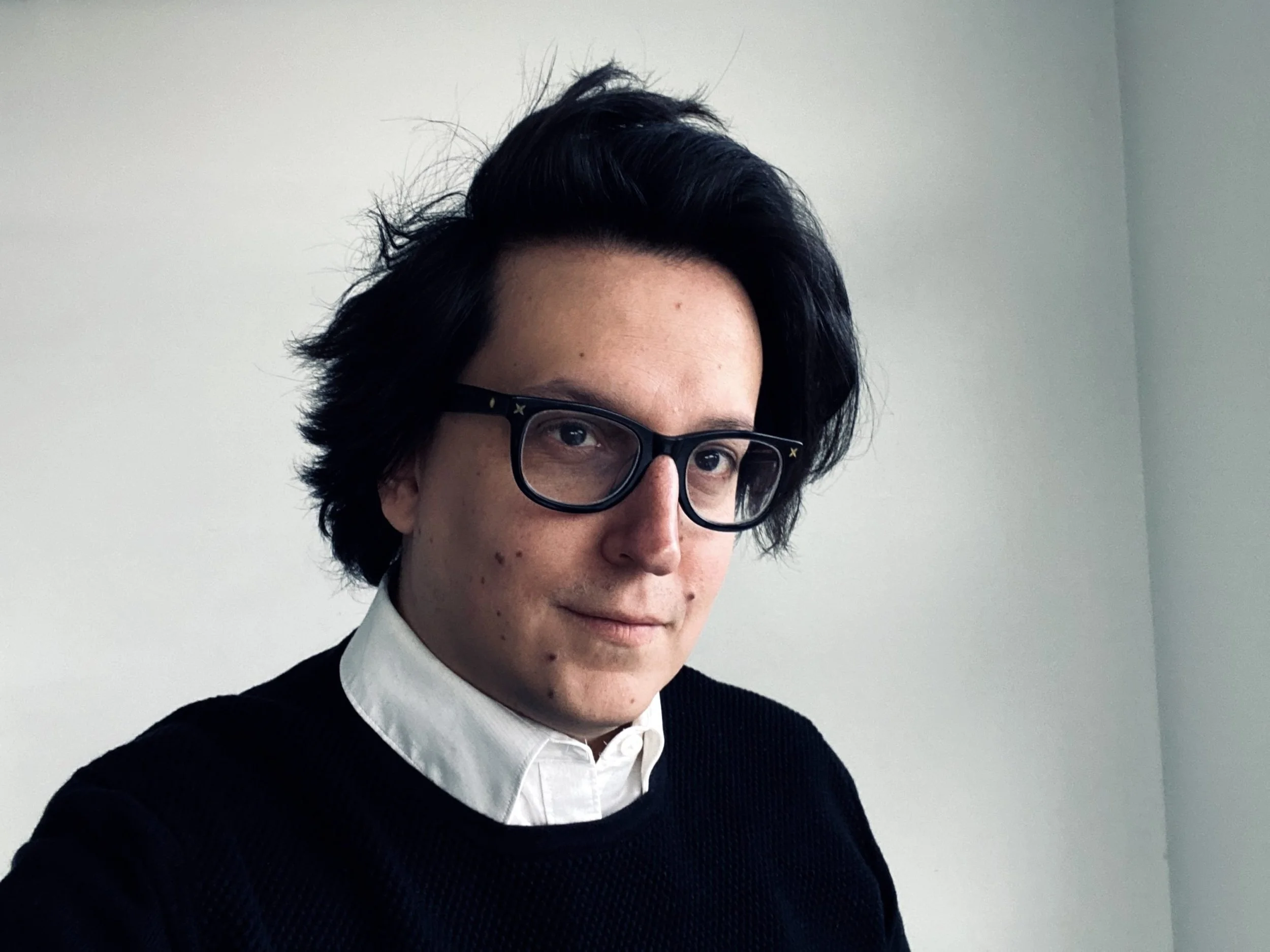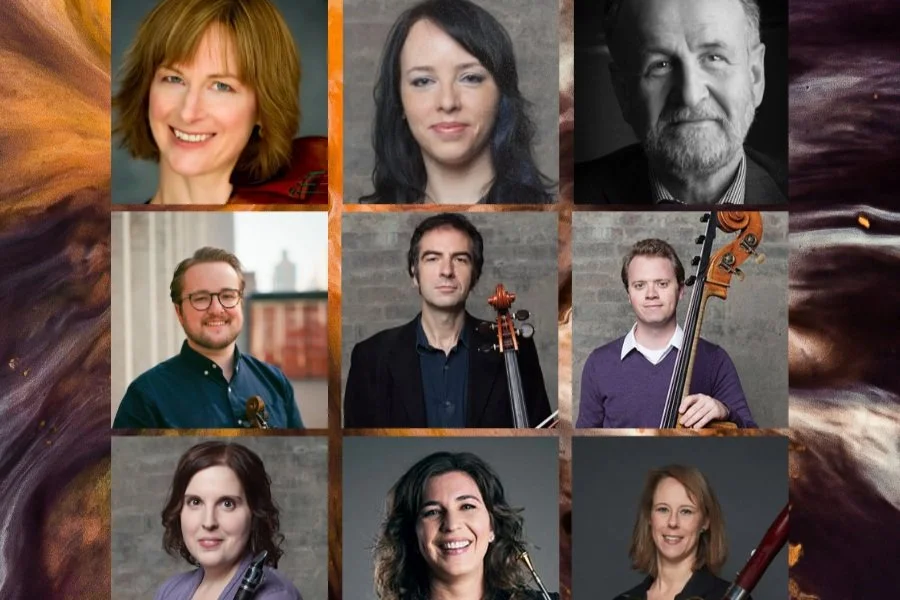Valerie Whitney explores the full range of the French horn at Sonic Boom fest
U.S.-born virtuoso and UBC instructor interprets work by local emerging composers—one as young as 14
A brass act: Valerie Whitney.
Vancouver Pro Musica presents Sonic Boom at Pyatt Hall and the Orpheum Annex from March 11 to March 13. Valerie Whitney’s recital takes place at the Orpheum Annex at 2 p.m. on March 13.
FOR PROOF THAT Valerie Whitney takes an upbeat approach to life, consider her response to having her performing career sidelined for almost two years by the COVID-19 epidemic.
“I don’t want to put too happy a light on it,” she says in a telephone interview from her UBC office, “but it was a positive experience in the sense that it really forced me to stay here and kind of get accustomed to being settled. It really helped me to put down some roots, interestingly enough, because I just didn’t travel at all.”
The U.S.-born French horn virtuoso was in her fourth semester of teaching at UBC when Vancouver’s musical life came to a crashing halt—but that hasn’t kept her from making some significant connections here, including forming the UBC Brass Trio with trombonist Jeremy Berkman and trumpeter Katherine Evans, playing in the Vancouver Brass Orchestra, and guesting with the Turning Point Ensemble.
But her upcoming showcase at the annual Sonic Boom festival of new composition represents one of the first times local listeners will get to hear her abilities as a solo performer. It’s also an opportunity for Whitney to acquaint herself with some of our region’s emerging composers, some of whom are very young indeed.
And none are younger than 14-year-old Judah Williams, whose Fragments for solo horn in F is a sophisticated and technically challenging exploration of what Whitney’s instrument can do.
“His piece is pretty succinct,” Whitney says. “He has five different episodes, but they’re each only 10 or 15 seconds long….And we all know how hard it is to put something succinctly. It’s a lot easier to explain something in 15 sentences than it is in one sentence. So the challenge for this composer, which I think he managed, was to take something and make it short but still make it cohesive. Each of these fragments, they sound very different. One explores the low register of the instrument, but the beginning of the piece goes kind of straight up to the extreme limit of the instrument, right from the get-go.”
“I’ve never been a composer,” she adds, “but I imagine that being able to write something very succinctly that’s still cohesive is a challenge—and he’s definitely explored what he can do in that capacity.”
Where Williams’ Fragments for solo horn in F covers a lot of ground in a very short amount of time, Henry From’s Improvisation takes a more relaxed approach. Although the 17-year-old pianist and violinist’s title is somewhat misleading—the piece is through-composed and features fairly detailed performance instructions—From’s aim is to convey the feel of extemporaneous exploration.
“It travels though a nice, logical trajectory, which takes some skill and talent,” Whitney says. “I mean, the piece works really well. It’s paced really well. And to me, his title tells me how to perform it, because improvisation is free. I look at that title and think ‘Okay, I don’t need to be totally strict with what he’s actually notated.’ He’s playing with metre and with subdivision a little bit, and hopefully that’ll come across to the audience in a way that doesn’t sound too structured. I think maybe his goal was to get away from a real strict sense of pulse.”
Other pieces on the matinee program include two that are explicitly programmatic: Kehao Cai’s Marching in the City Centre at Night and Craig Day’s Eagle. And while the first of these sounds like it might reflect current geopolitical concerns, Cai’s score is intended to invoke a happier mood than that currently prevailing in Ukraine’s embattled urban centres.
“The piece starts off with this fanfare, this very marital kind of idea,” Whitney says. “So I looked at this and I’m thinking ‘Okay, we’ve got a military unit coming into the city and setting up shop.’ That’s kind of what I was picturing in this: a protest or some sort of political unrest. But when I had the reading session with the composer a few weeks ago I asked him about that and he said ‘Oh, no. It’s just about taking a nice walk in the city at night. It’s peaceful and it’s quiet.’ So I really had to change my ideas around how to play this. I’m going to take the same fanfare figure, but now I’m going to play it in a way that’s little bit lighter, a little more like frolicking rather than marching.”
Eagle, in contrast, leaves streets and skyscrapers behind to paint an idyllic sonic portrait of the B.C. coast. “Its melodic lines are moving and flowing and jumping around in a way that might mimic the movement of a bird flying and swooping and diving,” Whitney notes.
Rounding out the horn-player’s part of the expansive program is Prelude & Dances by Réjean Marois, a rhythmic investigation of timbral colour that also asks Whitney to turn percussionist at times. She’s looking forward to the challenge—and to emerging from her COVID shell while finding a deeper engagement with her new home’s musical community.



